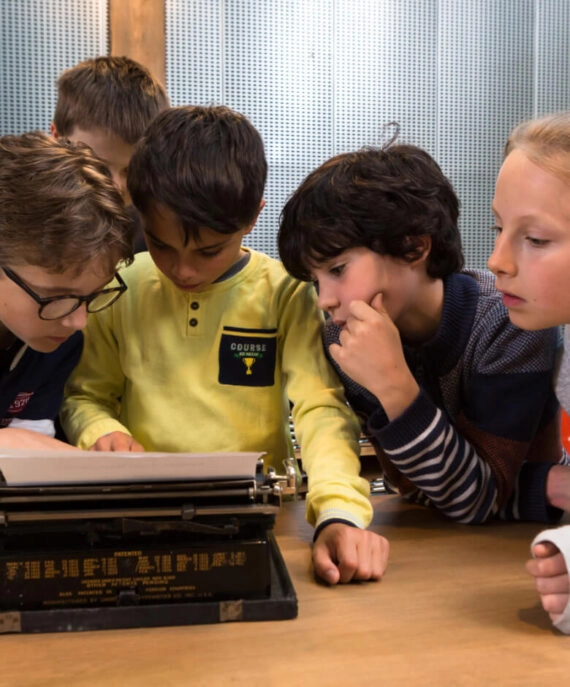Your school workshop
The Antoine de Saint Exupéry Adventure
A one-hour activity dedicated to pupils aged 8 - 11 years old to find out about La Ligne and the Antoine de Saint Exupéry pilot.
Description of the workshop
Toulouse, 1930: in his workshop in Montaudran, a mechanic of La Ligne welcomes the class to prepare a surprise for pilot Antoine de Saint Exupéry. The students, divided into teams, handle period objects, solve puzzles during their visit, follow the adventures of the author of The Little Prince and play a collaborative game retracing the life of the pilot in the days of L’Aéropostale.
Practical arrangements
- With a presenter
- One hour
- 28 students maximum (possibility of booking two consecutive workshops)
- €80 for the group
- Minimum of two accompanying persons required
- Plan six groups of students in advance to form the six teams
The group is welcomed to the workshop room of L’Envol des Pionniers. The activity is then offered in two stages: three groups of students remain in the workshop while three other groups are more or less independently searching the exhibitions looking for clues, guided by specific support media and equipment. Halfway through, the groups switch. The feedback session for the entire group takes place in the workshop room.

Activities
- Understand Morse code and code a telegram message
- Find out about and use a barometer and a telegram
- Find your way on a map to reconstruct the route of L’Aéropostale
- Research technical characteristics and the different parts of an aircraft.
- Identify the clothing accessories necessary for the pilot
- Look for technical objects in the exhibitions.
- Calculate a flight time and estimate the influence of wind on the flight
- Take measurements using a vintage tool.
Concepts worked on
Science and technology – Materials and technical objects
- Identify how scientific knowledge is constructed in connection with a historical context.
- Identify the main developments in needs and objects (technological development).
- Describe the functioning of technical objects, their functions and their constitutions.
- Use observation and measuring instruments.
- Identify and understand communication and information management.
History and Geography
- Find your way in time, construct historical benchmarks: order facts in relation to each other and place them in a given era or period.
- Name and locate major geographical landmarks, situate them in relation to each other.
- Use maps of different scales.
- Organise your work within a group to develop a shared task and make your skills and knowledge available to others.
- Identify characteristics of the place you live (heritage and local history).
